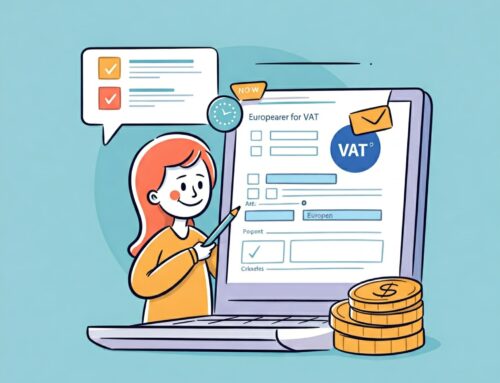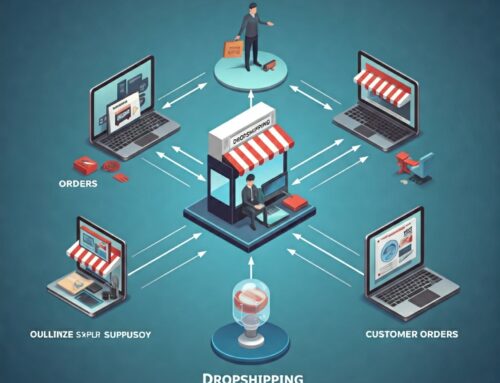This article has been written after the the substantial change in VAT regulation of July 2021.
Implications of European VAT on trade: everything you need to know
The European Union is implementing new rules for VAT in electronic commerce, with the aim of ensuring fair competition between the players in European and foreign markets, as well as between traditional shops. This change will come into effect in July 2021 and will have major repercussions on trade. The new system, which includes the One-Stop-Shop (OSS) or the Import One-Stop-Shop (IOSS), will offer companies a simpler and more uniform way of declaring and paying their VAT obligations in cross-border transactions. The VAT registration threshold in the EU depends on the country where a company is established, and the changes will remove existing thresholds for distance sales of goods from within and outside the EU. In this article, we will provide an overview of the new rules, explain what VAT is and the benefits of the new system, and offer two online options to meet the new special scheme.
Overview of changes in standards
In July 2021, the European Union will apply new rules in the area of distance sales of goods, both inside and outside the bloc. These changes are introduced to promote fair competition between the agents of electronic commerce and to simplify the process of collection and payment of Value Added Tax (VAT). Companies will have to register for VAT purposes in each EU country in which they sell goods, regardless of their turnover. To facilitate compliance, the online options of the OSS and IOSS are made available. Companies will be able to declare and pay their VAT obligations for cross-border sales through the OSS, and IOSS will allow them to declare and pay VAT on goods imported into the EU worth less than € 150. It is essential that companies understand and comply with the new rules to avoid penalties or fines related to intra-Community VAT.
VAT registration thresholds
The latest developments in the tax regulations for online commerce have led to a radical transformation in the way to collect Value Added Tax (VAT). In particular, the introduction of a single registration threshold across the European Union (EU) has been a welcome change, which removes the previous bureaucratic impediments to businesses.
For businesses located within the EU, VAT registration rules depend on their country of origin. This suppresses the need for them to be registered for VAT purposes in each country where they sell their products and services. Instead, they can register in their own country and use the OSS or IOSS to declare and pay their VAT obligations on cross-border transactions.
Non-EU companies also benefit from the new system, as they can be registered for VAT purposes through the OSS or IOSS, without having to hire a tax agent for each market in which they do business. This sets out a level playing field for online retailers around the world and reduces the administrative burden associated with compliance with VAT obligations.
The removal of VAT registration thresholds is an important step towards the creation of a simple and equitable system for overseas sales. It streamlines the VAT registration process for businesses and ensures that the tax is paid where goods and services are consumed. This benefits all businesses, both inside and outside the EU, and simplifies intra-Community operations.
Value Added Tax is an indirect tax that taxes the use of goods and services. It is a mandatory requirement for companies offering products or services, which must register and collect their customers ‘ tax. The tax amount is based on the value of the transaction. The registration threshold in the EU differs from country to country, and companies that exceed the limit must register and start collecting and paying the tax.
The payment of VAT is essential for businesses operating in the EU, as it is a tax based on the consumption paid by the end user. Under the new rules, companies will have a simplified and uniform approach to declaring and covering their VAT responsibilities in cross-border transactions with EU buyers. Knowing the changes is important to avoid penalties for non-compliance with the VAT payment.
The benefits of the new system for managing cross-border transactions are multiple. OSS and IOSS facilitate compliance, saving companies a time and precious resources that would otherwise have been dedicated to dealing with the different VAT rules and types of each country. In addition, the one-stop shop option allows companies to expand their reach beyond borders and into new markets without the hassle of complex tax procedures.
The new rules also guarantee the restoration of equity in the market. By deleting the distance selling thresholds of existing goods, it eliminates any competitive advantage that companies could obtain by circumventing VAT by selling below the limits. This ensures that e-commerce companies and traditional shops are on an equal footing, and that customers benefit from a transparent and equitable market.
Two online options to comply with the regulations
The European Union has introduced new legislation to make it easier for businesses to comply with their tax obligations when they trade with goods and services across borders. OSS and IOSS offer two online options for regulatory compliance, streamlining the payment and declaration process. This simplification will save businesses time and money, while creating a level playing field for all businesses operating in the EU.
In addition, the new system removes existing limits on cross-border sales, requiring all companies to meet their VAT commitments when they supply customers within the EU. This will reduce the chances of fraud and ensure fair competition. The OSS and IOSS also provide companies with a more effective way of declaring and paying their taxes, which translates into lower costs for consumers, who will have access to a wider range of goods and services at more competitive prices.
The launch of this digital single market for goods and services is a major step forward in creating a fairer, simpler and more secure system. It will reduce the administrative burden on businesses, while offering consumers more choice and value for money.
The new rules on VAT in e-commerce are a welcome step forward, as they offer companies a more effective and cost-effective way to meet their obligations. Ultimately, this will benefit all those involved in cross-border trade, creating a more just and secure digital single market for goods and services.
Conclusion
In conclusion, the new rules on VAT in e-commerce, which come into force in July 2021, will have a significant impact on cross-border trade in the EU. By ensuring that VAT is paid for where goods and services are consumed, the new system aims to create fair competition between e-commerce agents and traditional shops, while offering companies a simple and uniform way of declaring and paying their VAT obligations. With the introduction of two online options for compliance, OSS and IOSS, companies can easily navigate changes and benefit from a fairer and more fraud-resistant digital single market. Stay informed and updated on the latest changes by visiting TaxToSell Blog, or asking at any time our Free Online VAT and tax consultant in EU.





